MONTESSORI EDUCATION – DEFYING THE PANDEMIC
Even in the midst of the worst ever pandemic that brought entire human activities to a standstill, there were so many blessings that defied this pandemic with the only mission of giving hope to mankind. We saw the dawn of every day, the beautiful sunrises, the blooming of the flowers, the swaying of the trees, the chirping of the birds, the glorious sunsets, the twinkling of the stars, and felt the coolness of the moon. Yes indeed!! These natural happenings never ceased or paused. In reality they were all signs of hope and belief for the whole humanity that normalcy is on the way.
There was yet another activity that stood strong and unruffled in the world of education, continuing to guide and educate children never letting their developmental process come to a halt. THE MONTESSORI EDUCATION. How did this methodology defy the crisis and continue unabated? Why did this method run into barriers the conventional methods of education encountered? What made this education methodology so supreme that even a complete standstill of educational activities even could not stop it from imparting learning to children?
“Adaptation to the environment is the first necessity.”
– Maria Montessori
This then has been the watchword as well as one of the fundamental principles that the Montessori philosophy is based on. Maria Montessori had come across difficult situations that children encountered when learning, that made her to dedicate her entire life in bringing a natural learning process into education that came to be known as Montessori Method.
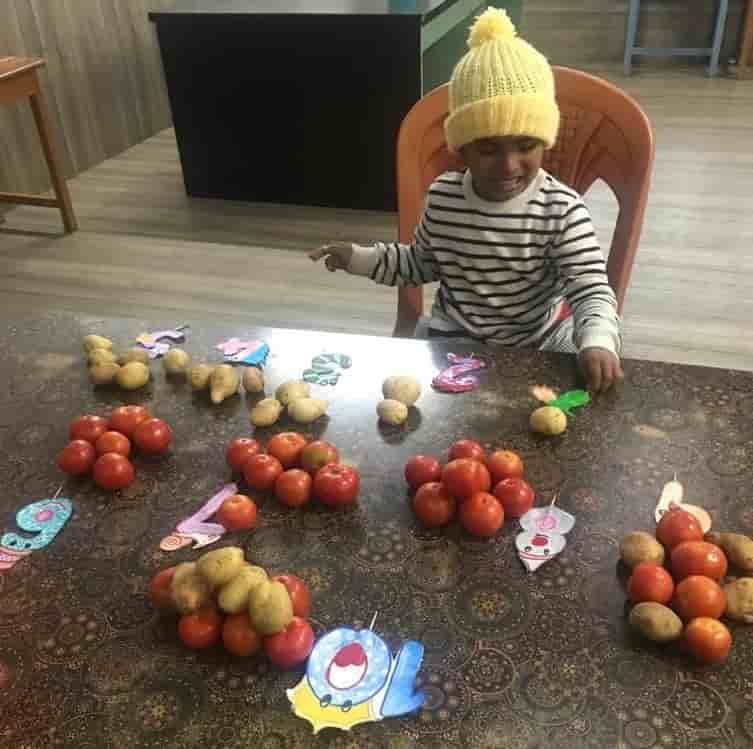
With Vruksha embracing this trait of education as its methodology to train the children, it stands as a shining beacon for the development of children even in the midst of this pandemic, continuing its unrelated march in fulfilling the needs of children according to their stages of development. Let us see the reasons that made this incredible feat possible.
Montessori students, guides, and schools are adaptable
In a conventional educational system, there is a curriculum that follows a time table, a stipulated printed material and scheduled assignments, periodical assessments to determine the progress of the child. All these are centred around the academic performance of the children and does not contribute to the other aspects of development in a child.
The Montessori education system is not a rigid system comprising of a schedule that has to be completed within a time-frame. The methodology consists of broad ideas for concepts and lessons to be shared with our students. The students then get drawn into this, opening more avenues for the teachers to guide them into more detailed learning encouraging them to explore more by raising questions instead of providing solutions. Hence the academic years become periods of adjusting and adapting to the pace of the learning of the students and also a period of amazement at their discoveries.
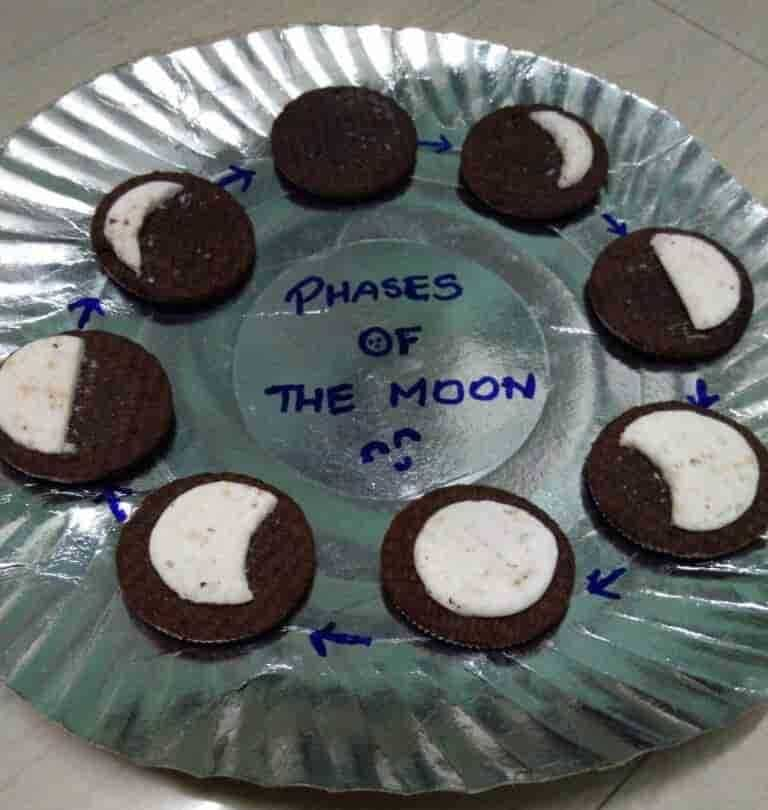
This then strengthens the ability of our teachers to be flexible and help them plunge into the unknown just to see that the needs of the children are fulfilled appropriately. As Montessori model is designed for adaptation, the learning progress of the child is not hampered or interrupted under any circumstance.
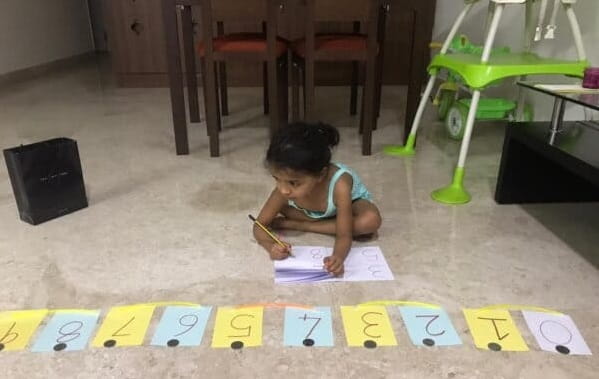
Universally many parents are aware of this adaptation as they realize that Learning is Happening and this adaptation aids the progress of the child all the time. The real challenge for a parent is to understand what does “learn from home” means and should realize that it is a lot different from physical learning at school.
Montessori schools across the world are one community
Montessori is the largest pedagogy in the world, with Montessori schools present on all six continents. This global community has knit the entire Montessori community into a strong educational unit in this pandemic.
Vruksha with its unique design of programs to be adapted at home easily for children to continue their learning uninterrupted, has been one of the pioneers in instigating this learning methodology. With the continuous sharing of resources and ideas, the Montessori education at home has become the most sought-after methodology in many of the countries.
Vruksha with its innovative Montessori Worldwide School has delivered the most effective learning method that is popular with the parents and children.
Montessori classrooms and schools are based on relationships
The Montessori education method establishes norms, expectations and culture that binds the community of children together in a process called “Normalization”. The behaviour of the children is amicable and appreciable as its their intention to support their entire community when needed and brings in the support of the parents too beyond the boundaries of the school.
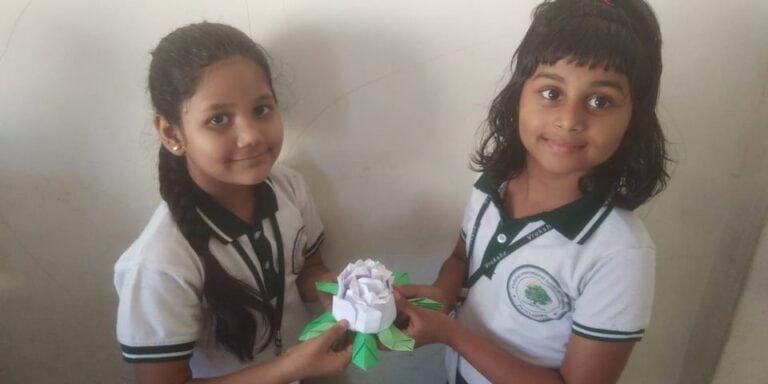
Birthday functions, important celebrations bring the families to support and care for one another. Children are given independent charge of planning functions both at home and at school for establishing the importance of their presence in the environment they live in.
There instances where parents are thoroughly dissatisfied by the standard of education done online. At Vruksha we always understand the needs of the parents too. To be a good parent and to care for your child these are some things that we recommend:
- Avoid travelling and maintain social distancing norms
- Prefer to Work from home.
- Have everyone home all at once–all the time.
- Support our children’s learning.
- Figure out how to work when our children are in the background.
- Worry about older adults in our lives.
- Pay attention to the news without falling into the abyss of constant news threads.
Montessori students care for themselves, each other, and the environment
Montessori principles underline the importance of all three rules as most of the guidelines are based on this. Whatever the crisis, these three rules have the prime importance. As we are in a global pandemic with stress, anxiety, sickness and death ruling the roost, these rules become cardinal inevitable necessities to be followed to the core.
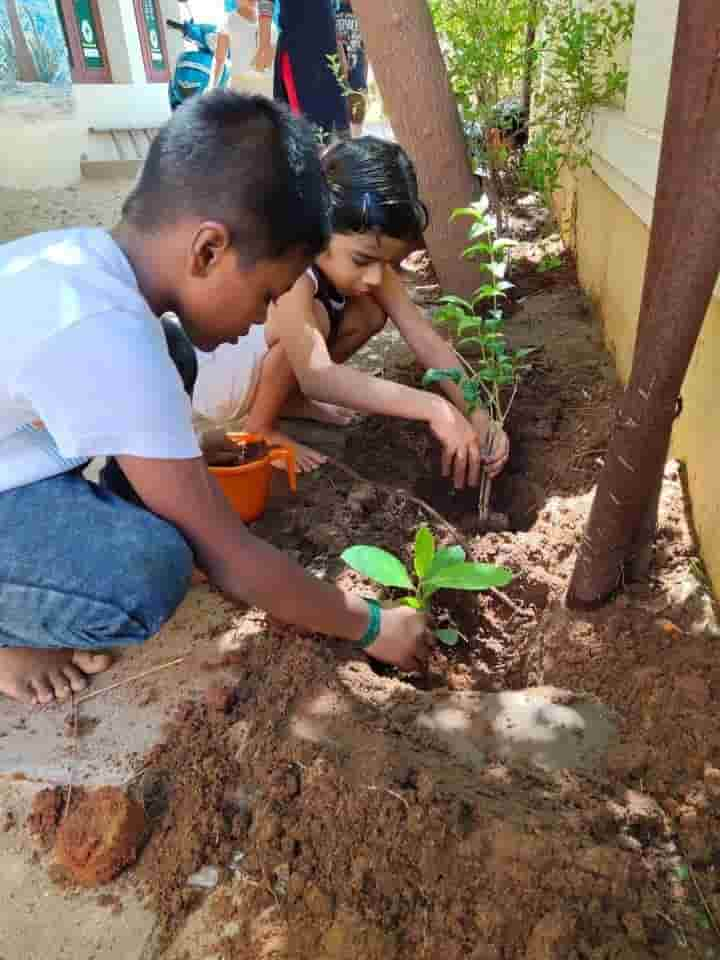
Now is the time to take care of ourselves, each other, and our environment and at Vruksha it is been taken as a noble task and the goodness, the spirit with respect to that will join many others with the same reflection that will go a long way for our entire world to make it through this hard and difficult times.
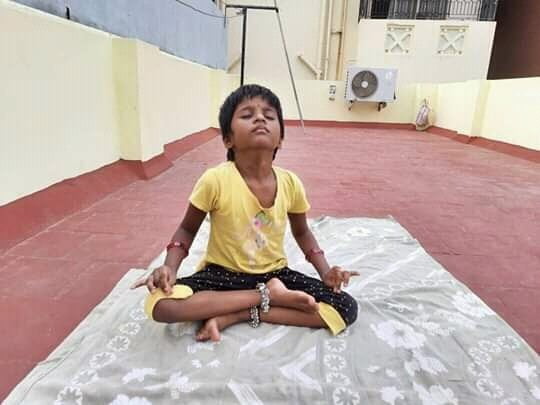
Vruksha understands the need for your children to be able to read, do math, and research. Right now, taking care of ourselves and others to the extent that we can is the need of the hour. Vruksha does both with ease as the learning continues in the comfort of the homes and caring for all also happens in the same environment.
Montessori students are self-motivated learners
In a conventional method of education, the responsibility for learning falls on the shoulders of teachers, administration, the curriculum and textbooks. The students in this environment seldom realize that learning is their responsibility.In a Montessori environment, the children know that learning is their own responsibility right from the day they start learning. Their learning is self-motivated and they always yearn to explore, reason and grown. This is because they make it to happen and never wait for an adult to come and instruct them on what they should do
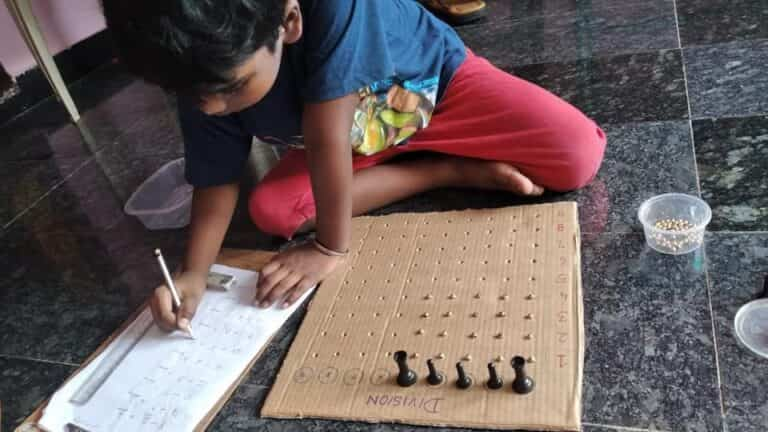
A Montessorian is never contented with the score from a test or exam. The child from the Montessori stream finds the sole satisfaction only in the realization of their own goals and benchmarks that he or she sets. The Montessori children own their education and knowledge and at this time when learning from home is the order of the day, this skill is very important.
